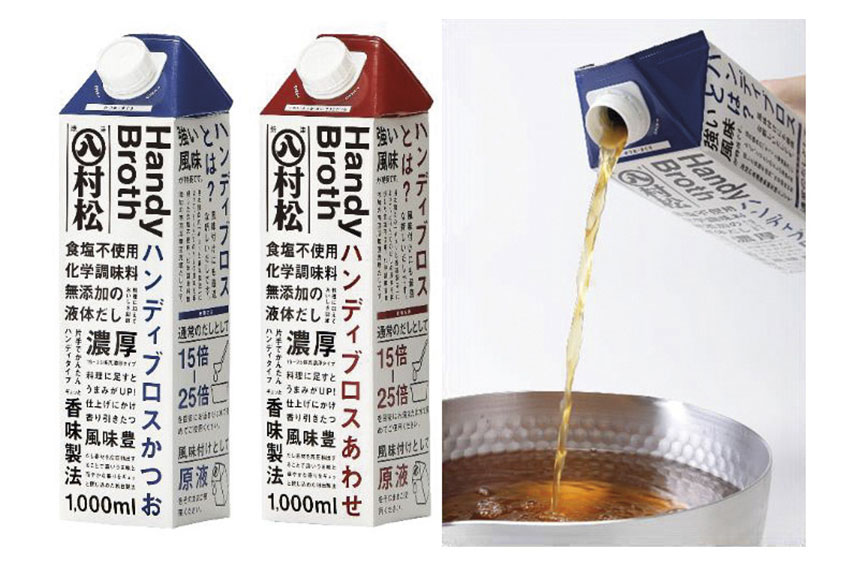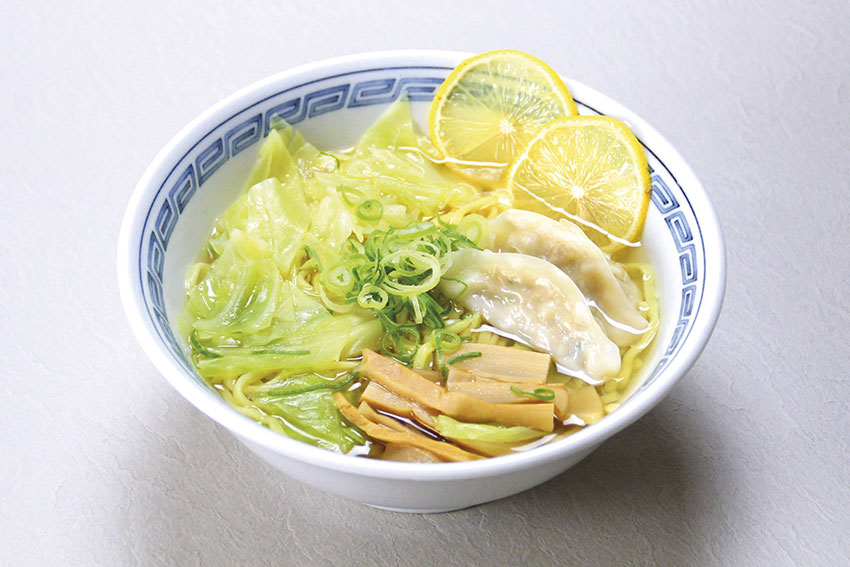Maruhachi Muramatsu are broadening the appeal of dashi and taking it international.

By Daniel de Bomford, Cian O Neill and Paul Mannion
As ingredients make the base of a beautiful meal, authentic dishes are an ingredient in the base of culture. Rich experiences through cuisine speak to our common understanding of culture, both familiar and foreign. Like cuisine as part of the basis of culture, Dashi is the basis for many of Japan’s most popular culinary dishes.
Maruhachi Muramatsu, Inc. have specialized in dashi for over 150 years, primarily engaging with food manufacturers and kitchens and culinary artists to produce the staples of Japanese cuisine. As Japanese food exports continuing to grow, the Japanese Government has set an ambitious JPY 5 trillion target, which fifth generation president Zempachi Muramatsu sees as achievable. “With an abundance of high-quality, health-promoting seafood and superfoods like matcha, as well as functional and health-focused foods, achieving the 5 trillion-yen market goal feels entirely within reach,” he says.
The health benefits and versatility of dashi are its greatest strength, with health-conscious diets on the rise both domestically and globally, dashi can be used to reduce the salt and sugar content of dishes. However, Mr. Muramatsu says that dashi isn’t limited to Japanese cuisine, it can be added to Western dishes as well. He explains, “With its unique ability to enhance natural tastes, dashi serves as a powerful ingredient for creating healthier, yet equally delicious meals.” Dashi isn’t limited to savory foods either and Mr. Muramatsu says the company is actively exploring new ingredients to create new flavors. He describes how Kombu dashi complements the flavor of sweet red bean paste (anko) and adds “incredible depth” to a risotto.
This variety of flavor is possible through high quality and diverse, natural seafood-based ingredients, which when combined create a complex and enjoyable experience. Mr. Muramatsu explains, “We have honed techniques to maximize the potential of these ingredients while continuously developing innovative applications to meet our customers’ needs.” By combining their natural ingredients and the umami flavor of dashi, Maruhachi Muramatsu delivers tasty, cost-effective products.

Maruhachi Muramatsu supplies these products to restaurants both domestically and abroad. Mr. Muramatsu says that they offer solutions to kitchens that require authentic dashi, regardless of size. Its Handy Broth, for example, can make precise amounts of authentic dashi in just 10 seconds, reducing food waste and saving labor. Saving labor in particular is an important differentiator in Japan, where the domestic workforce continues to shrink. With the domestic market continuing to shrink, it has found success looking abroad.
With Japanese restaurants flourishing in foreign countries and Japanese food increasing in popularity around the world, Maruahachi Muramatsu is well positioned to capitalize. Mr. Muramatsu says that many foreign chefs are already well acquainted with dashi, and he is eager to see that recognition diffuse into the public. Because of its B2B business, this recognition has been advantageous for Maruhachi Muramatsu, “We sell seafood-based dashi and plant-based ramen soups to these restaurants, and our sales have been steadily increasing.” But beyond Japanese restaurants, the versatility of dashi has proven to be the key to finding new markets. “To encourage the use of traditional Japanese seasonings like miso overseas, it’s crucial to adapt recipes to align with each country’s unique food culture,” Mr. Muramatsu explains. With plant-based diets on the rise and religious diets common in international markets, kombu and shiitake-based dashi are also finding vital channels for increased growth. He surmises, “As global palates become more diverse and menus expand, I am confident this will lead to further market growth and exciting opportunities.”
These opportunities exist beyond the humble dashi with Maruhachi Muramatsu’s R&D division making strides in functional foods and pharmaceutical sectors. Mr. Muramatsu says that they are committed to tackling global health challenges, such as osteoporosis, dementia and swallowing disorders by contributing to research, publishing findings and participating in academic conferences. “This year, we will conduct clinical trials focused on the elderly, striving to contribute to society with products that promote longer, healthier lives,” he says.
As the basis for cuisine, both traditional and modern, Mr. Muramatsu hopes that their dashi goes beyond and contributes to the betterment of the world. With rising sea temperatures affecting ingredients and processing generates waste, he hopes that Maruhachi Muramatsu can contribute meaningfully to its SDGs and a sustainable future.
To hear more from President Zempachi Muramatsu of Maruhacchi Muramastu, check out this interview with him
0 COMMENTS